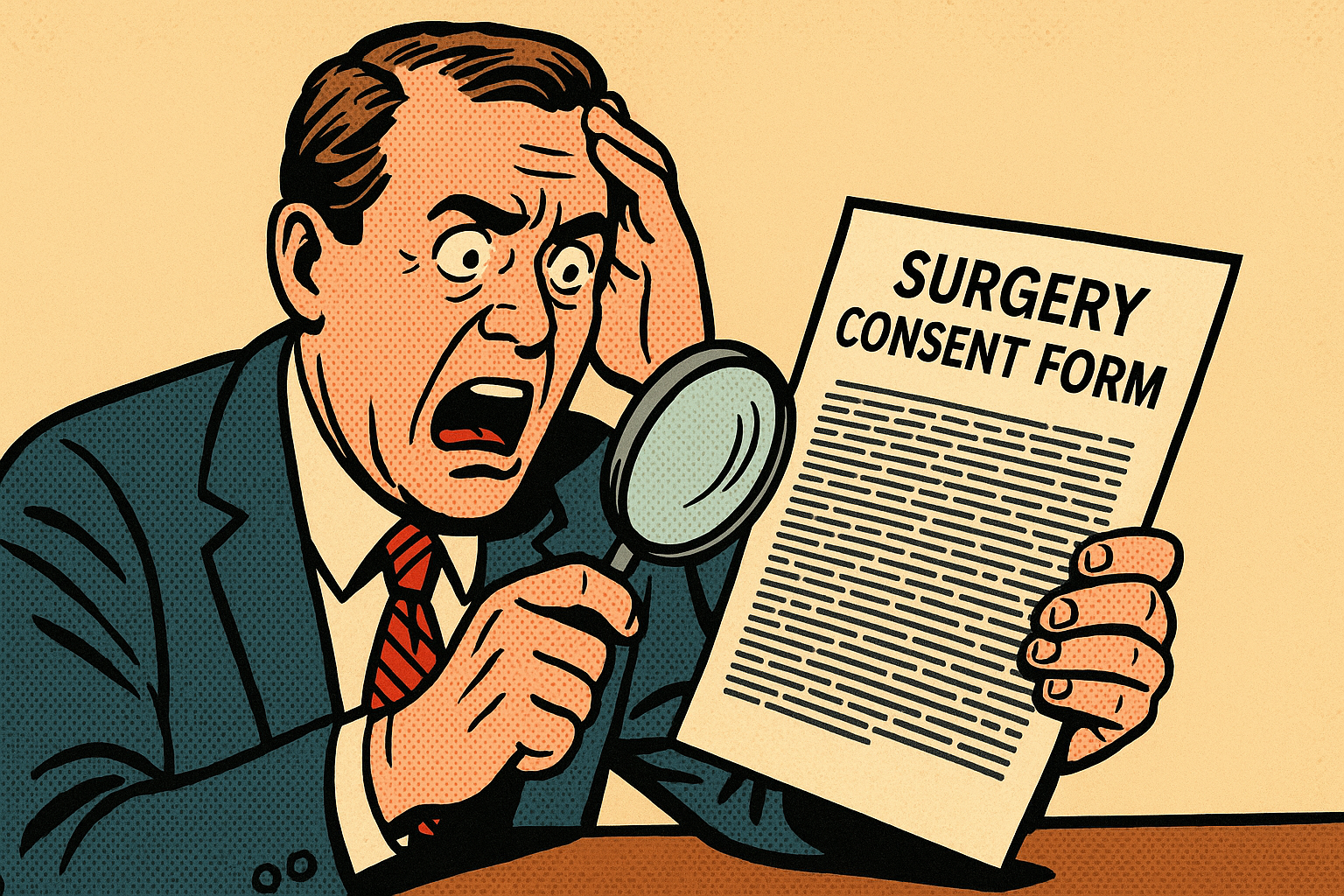Washington, D.C. – Lawmakers on Capitol Hill expressed surprise Tuesday after a bipartisan oversight committee revealed that the fine print on surgical consent forms may carry legal significance beyond decorative or stabilizing functions. The routine review, initially prompted by reports of “paper clutter” in operating theaters, has brought into question the longstanding assumption that such documents are primarily office decor or makeshift coasters for physician coffee mugs.
Committee Chair Rep. Roger Alton (R-MN), who co-authored last year’s Patient Paperwork Streamlining Act, admitted bewilderment at the “unexpected interpretive gravity” of consent forms. “For years, we’ve joked these things were just for obstructing breeze flows,” Alton said. “Now we’re hearing that people are actually meant to read them, and what’s more, hospitals might even be following what’s written.” The committee’s 186-page preliminary report details several cases wherein patients’ initials and illegible signatures appeared to factor into medical decision-making, though the metrics could not be independently verified, as most originals had been shredded for use in hamster enclosures.
Medical experts were summoned to clarify the phenomenon, with the National Board of Surgical Paperwork (NBSP) commissioning a poll of 6,000 administrators. Results indicate that 92% of surgical consent forms were signed, 6% were devoured by anxious relatives, and 1% were folded into tiny hats for anesthesia dolls. Dr. Loretta Chin, Director of Consentology at the University of Nebraska, illuminated the findings: “The legislative community’s shock is understandable. We ourselves only recently deciphered that the forms’ fine print is not merely lorem ipsum, but pertains to patient autonomy, procedural hazards, and the suggested frequency of applause for successful appendectomies.”
Attention soon turned to operational impacts. The American Association of Surgical Support Staff (AASSS) pointed out that the perceived uptick in patients refusing “optional amputation” addenda since the committee’s findings went public has resulted in a backlog of whole legs and surplus left kidneys. Worker frustration is also reportedly high, as paperweight shortages force escalations; one Nebraska hospital stabilized 78 fluttering invoices last month using outdated stethoscopes and three medical students.
Lawmakers vowed a review of all clinical forms, including the newly suspect “do not resuscitate (unless you insist)” slips and the controversial pre-anesthesia crossword challenge. Rep. Alton, now cautious, conceded, “It appears paperwork is not only for shoving in folders or folding into emergency bookmarks. The question remains: If we keep reading the fine print, will we discover more dangerous uses? For now we recommend all citizens avoid hospitals unless absolutely necessary, or until form translation committees complete their work in 2029.”

Deixe um comentário